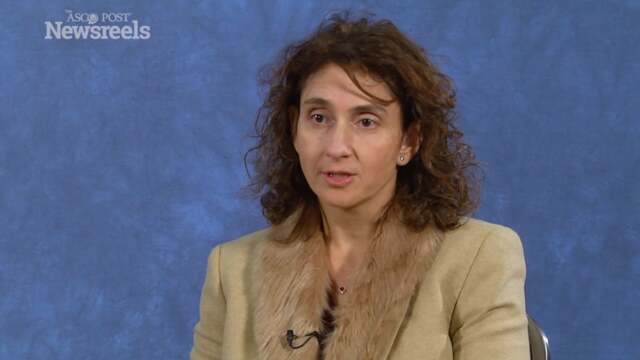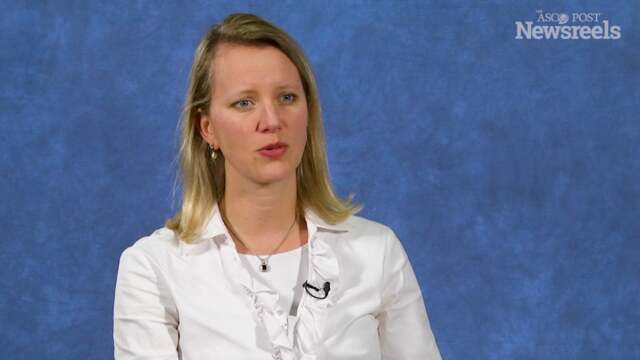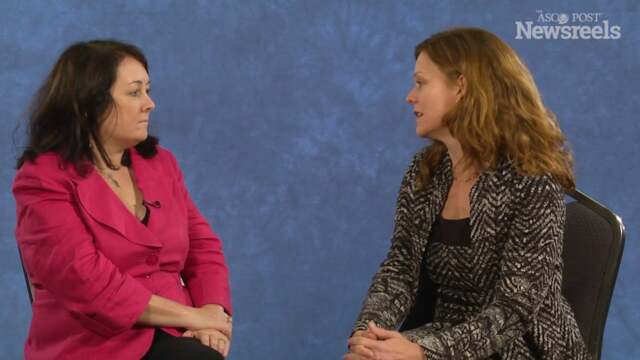Jame Abraham, MD, on ER-Positive Breast Cancer: Expert Perspective on Initial Results of NRG Oncology/NSABP B-42
2016 San Antonio Breast Cancer Symposium
Jame Abraham, MD, of the Cleveland Clinic, gives his perspective on study results of extended adjuvant endocrine therapy in postmenopausal women with estrogen receptor–positive breast cancer who have completed previous adjuvant endocrine treatment (Abstract S1-05).
Virginia G. Kaklamani, MD, DSc, of The University of Texas Health Science Center, discusses new directions in prevention, early detection, and treatment of early-stage breast cancer, using genomic tests and targeted therapies.
Anne Hudson Blaes, MD, of the University of Minnesota, discusses the association between aromatase inhibitors, endothelial function, and early heart disease (Abstract S5-07).
Dawn Hershman, MD, of the Herbert Irving Comprehensive Cancer Center at Columbia University Medical Center, reviews findings on survivorship care plans, interventions to reduce chemotherapy-induced peripheral neuropathy, and the cardiac effects of aromatase inhibitors (Poster Discussion 4).
Ruth O’Regan, MD, of the University of Wisconsin, and Ann H. Partridge, MD, of the Dana-Farber Cancer Institute, discuss study findings on the prognostic associations of TILs in metastatic HER2-positive breast cancer (Abstract S1-04).
Hyo Sook Han, MD, of Moffitt Cancer Center, discusses phase II study findings on the efficacy and tolerability of veliparib in combination with carboplatin and paclitaxel vs placebo in patients with BRCA1 or BRCA2 mutations and metastatic breast cancer (Abstract S2-05).





